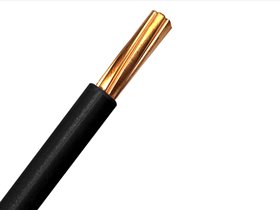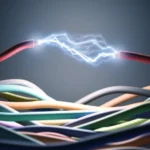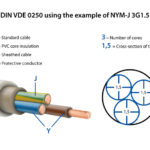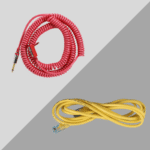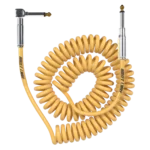Understanding What is Copper Wire and Its Essential Role
What is copper wire used for encompasses a vast range of applications that form the backbone of modern electrical infrastructure. What is copper wire fundamentally? It's a highly conductive metal conductor that enables efficient electricity transmission across residential, commercial, and industrial systems. Understanding what are copper wires used for helps explain why this material dominates electrical installations worldwide.
What is the Copper Wire in Electrical Systems
What is the copper wire in electrical systems serves as the primary conductor for power distribution and signal transmission. Copper wire used in electrical applications provides superior conductivity, safety, and reliability compared to alternative materials. What is copper wiring encompasses both power distribution and control signal applications across diverse electrical systems.
Essential Properties of Copper Wires and Cables
Copper wires possess unique characteristics that make them ideal for electrical applications. What are copper cables made of includes high-purity copper conductors with various insulation materials designed for specific environmental conditions. Copper cables offer excellent electrical conductivity, corrosion resistance, and mechanical durability essential for long-term performance.
Residential Applications: What is Copper Wiring Used For
Home Electrical Systems
What is copper wiring in residential applications includes branch circuits, outlet wiring, and lighting systems. Copper wire for electricity in homes provides safe, reliable power distribution to appliances, lighting, and electrical outlets throughout residential structures.
HVAC and Climate Control
Copper used for electrical wiring in HVAC systems includes motor connections, control circuits, and thermostat wiring. The superior conductivity of copper wire for electricity ensures efficient operation of heating and cooling equipment.
Smart Home Integration
Modern residential applications expand what are copper wires used for to include home automation systems, security networks, and integrated smart home technologies. Copper wiring supports these advanced systems through reliable signal transmission and power delivery.
Industrial Applications: Copper Used Electrical Wiring
Manufacturing Equipment
Copper used electrical wiring in industrial settings includes motor windings, transformer construction, and control panel connections. What are copper wires used for in manufacturing encompasses both power distribution and precise control signal transmission for automated equipment.
Power Distribution Systems
Industrial facilities rely on copper wire used for high-voltage distribution, switchgear connections, and electrical panel wiring. Copper for electricity in industrial applications handles substantial current loads while maintaining safety and reliability standards.
Process Control Systems
What is copper wire used for in industrial automation includes connecting sensors, controllers, and monitoring equipment. Copper wires enable precise signal transmission essential for automated manufacturing processes and quality control systems.
Telecommunications: Copper Cable Network Applications
Network Infrastructure
Copper cable network systems form the foundation of telecommunications infrastructure. What are copper cables used for in telecommunications includes telephone systems, internet connections, and local area networks supporting business and residential communications.
Data Center Connectivity
Copper cable in networking applications includes server connections, switch interconnections, and storage system wiring. Copper cable for network applications provides cost-effective solutions for short-distance, high-speed data transmission in data centers.
Ethernet and Structured Cabling
Copper cables in computer networks include Category 5e, Category 6, and Category 6A cables supporting various network speeds. Copper cabling systems enable reliable data transmission for modern office environments and commercial facilities.
Copper Cable Types and Their Applications
Power Cable Categories
Copper cable types for power applications include low-voltage building wire, medium-voltage distribution cables, and high-voltage transmission cables. What is a copper cable varies significantly based on voltage rating, current capacity, and environmental requirements.
Communication Cable Varieties
Copper cables types for communications include twisted pair cables, coaxial cables, and specialized data transmission cables. Each copper cable type serves specific applications in telecommunications and data networking systems.
Specialized Cable Applications
What are copper cables designed for specialized applications include fire-resistant cables, marine-grade cables, and high-temperature industrial cables. These copper cables meet specific environmental and performance requirements for demanding applications.
Automotive Industry: Copper in Electricity Applications
Vehicle Electrical Systems
Copper in electricity applications for automotive includes engine management systems, lighting circuits, and electronic control modules. Modern vehicles contain extensive copper wiring networks supporting advanced electrical and electronic systems.
Electric Vehicle Infrastructure
The growing electric vehicle market expands what is copper wire used for to include charging station wiring, battery management systems, and high-voltage power distribution. Copper wire for electricity in electric vehicles significantly exceeds traditional automotive requirements.
Advanced Safety Systems
Copper wires enable advanced driver assistance systems, radar connections, and sensor networks that support modern vehicle safety features and autonomous driving capabilities.
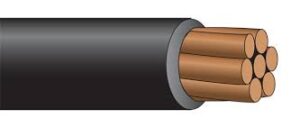
THW/TW Copper Electrical Wire Construction
Construction and Infrastructure: Copper Used for Electrical Wiring
Commercial Building Systems
Copper used for electrical wiring in commercial construction includes fire alarm systems, emergency lighting, elevator controls, and building management systems. Copper wiring ensures reliable operation of critical building infrastructure and safety systems.
Infrastructure Projects
Large-scale developments utilize copper wire used in traffic management systems, street lighting networks, and municipal utility connections. Copper for electricity in infrastructure provides long-term reliability for public systems.
Renewable Energy Integration
What are copper cables used for in renewable energy includes solar inverter connections, wind turbine wiring, and energy storage system connections. Copper cables support the growing renewable energy sector's electrical infrastructure needs.
Computer Networks: Copper Cable Network Systems
Local Area Networks
Copper cable network installations support business communications through structured cabling systems. Copper cables in computer networks provide reliable, cost-effective connectivity for office environments and commercial facilities.
Data Transmission Standards
Copper cable in networking applications support various data transmission standards from Fast Ethernet to Gigabit Ethernet. Copper cable for network applications continues evolving to meet increasing bandwidth demands.
Network Topology Considerations
Copper cabling systems support various network topologies including star, ring, and mesh configurations. What are copper cables capable of depends on cable category, installation quality, and network equipment specifications.
Technical Specifications: What is Copper Wire Performance
Electrical Properties
What is copper wire performance characteristics include 100% International Annealed Copper Standard (IACS) conductivity rating. Copper wire for electricity provides excellent current-carrying capacity with minimal power loss during transmission.
Temperature Ratings
Copper wire used in various applications requires different temperature ratings from standard 60°C residential applications to high-temperature industrial uses up to 200°C. Temperature specifications determine appropriate copper wiring applications for specific environments.
Mechanical Properties
Copper wires offer excellent flexibility, tensile strength, and resistance to mechanical stress. What are copper wires used for often depends on mechanical requirements including vibration resistance and installation flexibility.
Market Analysis: Copper Cables and Wiring Trends
Growing Demand Sectors
Current market trends show increasing copper cable demand in electric vehicle infrastructure, renewable energy systems, and data center construction. These sectors drive significant growth in copper cables applications globally.
Technology Integration
Copper cabling continues evolving to support emerging technologies including Internet of Things (IoT) devices, smart grid systems, and advanced manufacturing automation. What is copper wire used for expands with technological advancement.
Sustainability Considerations
Environmental factors influence copper cables selection through recycling programs and sustainable manufacturing practices. Copper wire recyclability supports circular economy initiatives while maintaining performance standards.
Installation Standards: Copper Used Electrical Wiring
Safety Requirements
Copper used electrical wiring must comply with electrical codes including NEC (National Electrical Code), IEC standards, and local regulations. Proper installation ensures safe operation across all copper wiring applications.
Environmental Considerations
What are copper cables suitable for specific environments depends on factors including moisture, temperature extremes, and chemical exposure. Appropriate copper cable types ensure reliable performance in diverse conditions.
Quality Standards
Copper cables manufacturing follows strict quality standards ensuring consistent performance across applications. What is a copper cable quality depends on conductor purity, insulation materials, and manufacturing processes.
Future Developments: Advanced Copper Wire Applications
Smart Infrastructure
Emerging applications expand what is copper wire used for in smart city initiatives, intelligent transportation systems, and advanced utility networks. Copper wiring supports next-generation infrastructure development globally.
Industrial Internet of Things
Copper cables increasingly support IIoT implementations connecting sensors, controllers, and monitoring systems throughout industrial facilities. This trend significantly expands traditional copper wire used applications.
Energy Storage Systems
Battery storage systems create new copper cable applications in renewable energy integration and grid stabilization. These developments represent growing copper cables uses in energy infrastructure.
Economic Considerations: Copper Cable Investment
Cost-Effectiveness Analysis
What are copper cables economic advantages include lower installation costs compared to fiber optic alternatives for short-distance applications. Copper cable cost-effectiveness supports widespread adoption across diverse applications.
Market Stability
The global copper cables market reflects stable demand across established applications while growing in emerging sectors. Market projections indicate continued expansion of copper cabling applications through 2030.
Return on Investment
Copper wire used in infrastructure projects provides excellent long-term value through durability, reliability, and maintainability. What is copper wiring return on investment often exceeds alternative materials over system lifetime.
Conclusion: The Comprehensive Role of Copper in Electrical Systems
Understanding what is copper wire used for reveals the critical role this material plays across virtually every aspect of modern electrical infrastructure. From basic copper wiring in homes to advanced copper cable network systems, copper conductors form the foundation of reliable electrical systems worldwide.
The diverse applications demonstrate why what are copper wires used for continues expanding as technology advances. Copper cables provide the essential connectivity enabling everything from residential electrical systems to complex industrial automation and telecommunications networks.
What is the copper wire in electrical systems represents more than just a conductor—it's the enabling technology for modern civilization's electrical infrastructure. As global infrastructure continues developing, copper used for electrical wiring will remain central to reliable, efficient electrical systems across all applications.
Whether in traditional copper wiring applications or emerging copper cable technologies, the versatility and reliability of copper for electricity ensures this material remains essential for electrical and electronic systems for decades to come.

